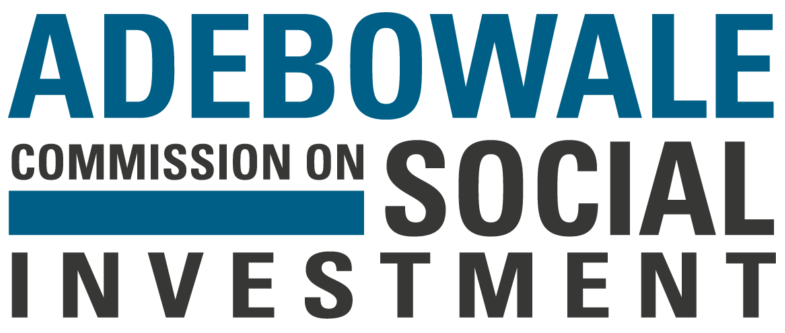Commission on Social Investment calls for “comprehensive structural reform” to deliver major jobs and growth dividend

The independent Commission on Social Investment has published its final report on how the social investment market can support the growth of social enterprises.
The Commission was launched in February 2020 by Lord Victor Adebowale CBE with the support of Fusion21, the national social enterprise. Although interrupted by COVID-19, the Commission has engaged with over 300 social enterprises, taken over twenty hours of recorded evidence and held sixteen engagement sessions with social enterprises, policy workshops and public witness sessions.
The Commission’s final report has called for “comprehensive structural reform” to the social investment market. It concludes that “the needs of social enterprises have been deprioritised over the past decade” and that “social investment cannot work – and has no purpose – without social enterprise.” This deprioritisation has come at a time when social enterprises need greater access to finance, with the social enterprise sector growing rapidly.
The Commission also highlights a major opportunity for economic and jobs growth. Its recommendations could see 5,000 social enterprises grow, creating 180,000 jobs either directly or indirectly, with 36,000 jobs in our most deprived communities, adding £3bn to the UK economy and injecting over £600m into the poorest parts of the UK.
Yet the Commission has found that after £600m of public investment since 2010, the market is “fundamentally the same in 2019 as it was in 2011”. Social enterprises in the regions and nations of the United Kingdom have been underserved by social investment as well as disadvantaged groups, such as Black-led social enterprises. In particular, the Commission found that the “social investment continues to have a serious problem with inclusion and equity particularly, although not exclusively, in relation to race.”
The Commission found that the structure of the social investment market was at the root of these problems, particularly the lack of patient, concessionary capital for on lending to social enterprises and the lack of flexibility in the structure of key institutions within the social investment market, such as Big Society Capital. These structural weaknesses have led to a lack of diversity in the financial products available to social enterprises, particularly a lack of “enterprise-centric finance”, which the Commission has defined as investment which is built around the needs of social enterprises with flexible repayment terms rather than conventional debt products.
In order to reform the social investment market, the Commission has recommended:
- HM Government should develop a new UK-wide social investment strategy, in consultation with the devolved administrations, to provide renewed clarity and purpose to the social investment market which has been underpinned by nearly £1bn in public investment.
- A new £400m ‘Frontiers Fund’ should be given to a reformed Big Society Capital, which should have its financial sustainability target removed, to provide enterprise-centric finance to social enterprises.
- An additional £100m investment in Access – The Foundation for Social Investment, to ensure the ongoing provision of blended finance to social enterprises.
- A new “Flexible Capital Taskforce” to work with charitable foundations to boost their investment in social enterprises and unlock £380m of new capital by 2030.
- A new £50m “Black-led” social investment fund to tackle the current inequality of social investment in Black-led social enterprises.
- A new “Social Enterprise Loan Guarantee” scheme to provide security to investors in long term patient capital for social enterprises backed with £200m of public money.
- Regular investment in place-led social enterprise infrastructure to support the growth and development of social enterprises that can access social investment. An initial investment of £44m should be made from dormant assets with further tranches in the future.
Lord Victor Adebowale CBE, Chair of the Commission on Social Investment, said:
“This is a long report, but the core message is a short and simple one. We need the social investment market to get back on track by putting the needs of social enterprises at the centre of everything it does. This means finding flexible sources of capital which can accelerate the growth of social enterprises and provide workable investment to disadvantaged organisations, such as Black-led social enterprises. It means reforming the institutions of the market so that they are all completely focused on the needs of social enterprises.”
“Our report does not look to assign blame to any particular individual or organisation. We believe that the problems are essentially structural, but we must learn the lessons of what has and has not worked over the past decade. If we can make the structural changes outlined in this report, I believe we can make social investment work for social enterprises and, most importantly, enable them to create the jobs and opportunities which our country desperately needs.”
“I hope that government, social enterprises, social investors and all stakeholders will come together to refocus the social investment market and implement these recommendations.”
Chris Murray, Chair of Fusion21 and Commissioner of the Commission on Social Investment, said:
“I am pleased to see the publication of this report after many months of evidence gathering, engagement with social enterprises and listening to stakeholders. This work has identified challenges but underlying that is an amazing story of what social enterprises have delivered for the people and economy of the UK, and a big opportunity to do more that this report urges us to grasp.”
“Acting on these recommendations can create tens of thousands of jobs in our most deprived communities, whilst delivering £3billion for our economy – it’s a massive win-win and a practical example of how we can level up the UK.”
“Fusion21 is committed to this mission and that is why we are working with Social Investment Business to run a Recovery Loan Fund to provide patient, flexible finance to social enterprises and charities and to help them to recover from the impact of the pandemic.”
“This report should be the beginning of a conversation about social investment, not the end, enabling investors and social enterprises to deliver on what are ultimately shared goals: to increase the benefits of their activity for everyone, across the whole of the UK, and to make social business a more central part of our future economic model.”

 Jo Hannan - Fusion21 Foundation Manager
Jo Hannan - Fusion21 Foundation Manager
